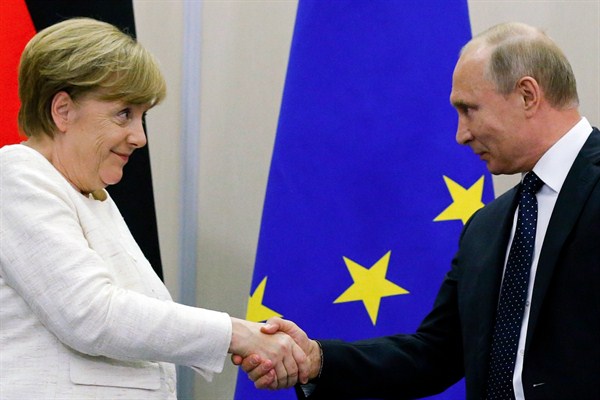European leaders are widely expected to maintain Ukraine-related sanctions against Russia at this week’s European Council summit in Brussels, despite disagreement among some member states. With Italy’s newly formed populist government looking at improving ties with Russia and U.S. President Donald Trump reportedly preparing to meet with Russian President Vladimir Putin next month, the key player holding together an EU-wide consensus on sanctions policy is Germany. In an email interview, Susan Stewart, a senior associate at the German Institute for International and Security Affairs, or SWP, in Berlin, discusses the impact of sanctions on German-Russian relations and how they are playing out in Germany.
World Politics Review: How had political and economic relations between Germany and Russia evolved in recent years prior to the imposition of European Union sanctions over Russia’s interference in Ukraine, and what were the primary areas of economic ties?
Susan Stewart: Prior to Russia’s annexation of Crimea and its destabilization of the Donbass region in eastern Ukraine, the German-Russian relationship was in fairly good shape. In particular during the presidency of Dmitri Medvedev, from 2008 to 2012, political and economic ties were strong, and many in Germany believed that Russia would embark on a course of substantial reform. Berlin therefore proposed a “modernization partnership” that foresaw intensifying economic cooperation overall, including an emphasis on certain spheres such as health and energy. The Petersburg Dialogue, founded in 2001 as a forum to promote bilateral relations, constituted an ongoing attempt—albeit a somewhat politicized one—to deepen ties on the level of civil society. Trade volumes between the two countries rose steadily, with Russia exporting mainly oil and gas to Germany and importing primarily machinery, motor vehicles and chemical products. The number of German firms active in Russia rose to well over 6,000. In 2011, the Nord Stream pipeline began to transport natural gas directly from Russia to Germany.

